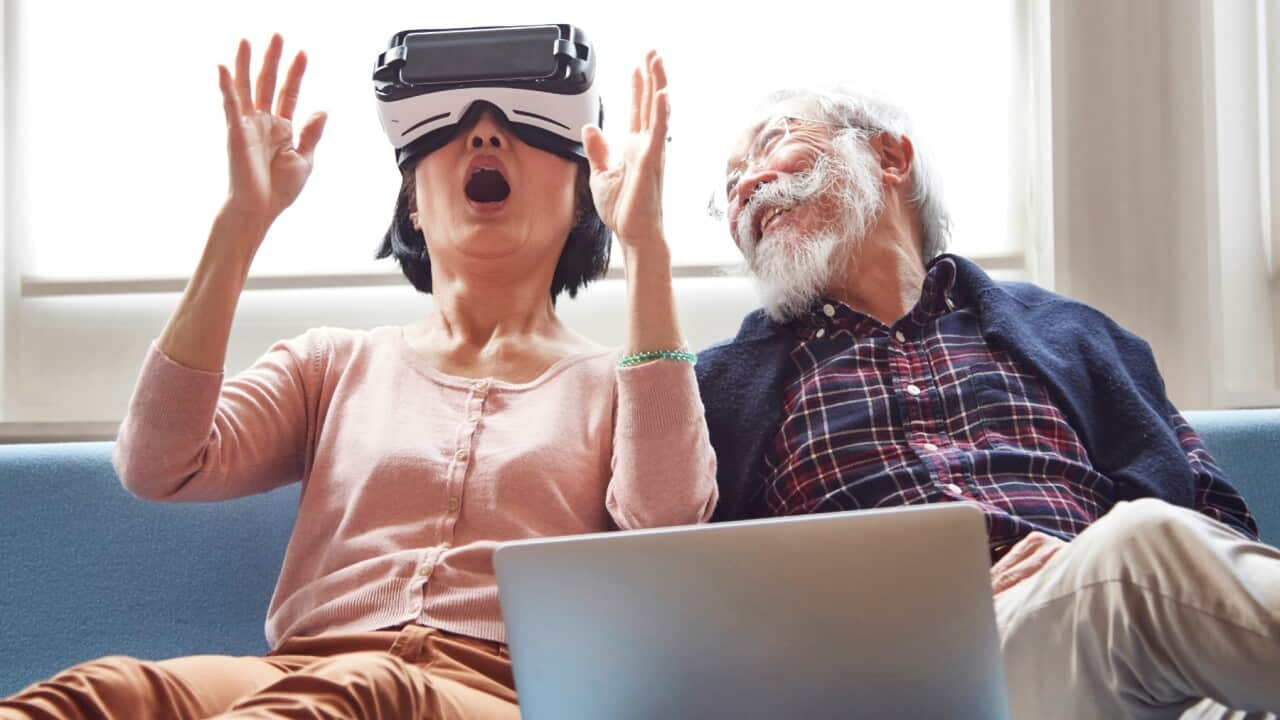While overseas or interstate travel was halted by travel restrictions and border closures, some of Clarke’s clients are instead opting for shorter trips closer to home and medical facilities.
But not everyone can afford to get out for fresh air, especially seniors whose mobility were already limited prior to COVID-19. Bayside University of the Third Age, or U3A, has been offering armchair travel courses for nearly a decade. Its president Tony Aplin has taught the class in person and now does so online.
Some are experiencing a more immersive travel experience in virtual reality (VR) at residential aged care facilities through a headset that places the user within their chosen setting.
Melbourne technology start-up SilVR Adventures began offering this experience to aged care facilities last year.
Its CEO Colin Pudsey explains that while this technology may need a bit of getting used to, the 360-degree setting allows users to explore places of significance in the past or new locations they would have liked to visit.
In the case of Monash University’s Virtual Angkor project, sensiLab’s Dr Thomas Chandler explains that users can even travel back in time in an animated virtual experience of the world’s largest religious monument in the medieval times.
Clarke encourages more older people to embrace technology to experience the world from home amid health concerns and travel restrictions.
Call the Be Connected helpline on 1300 795 897 or visit for free information on how to use the internet.
To access an interpreter, ring the on 13 14 50 first to be redirected to your preferred organisation in your language.

Source: SBS




